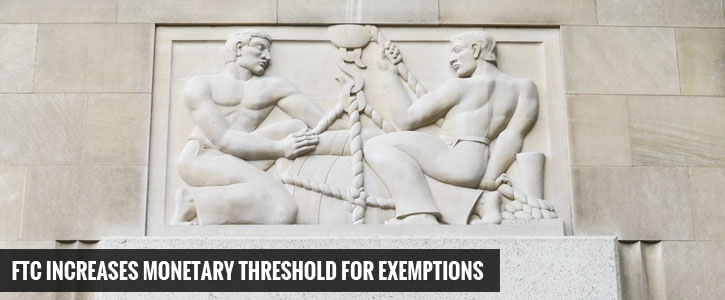FTC INCREASES MONETARY THRESHOLD FOR EXEMPTIONS

On May 19, 2016, the Federal Trade Commission (“FTC”) made their quadrennial update to monetary thresholds for Franchise Rule Exemptions.
The FTC Franchise Rule gives prospective purchasers of franchises the material information they need in order to weigh the risks and benefits of such an investment. However, the sale of a franchise may qualify for exemptions from the Rule if it meets certain thresholds set forth by the FTC. These thresholds are adjusted by the FTC every four years in order to deal with inflation based on the Consumer Price Index.
In its most recent update, the FTC adjusted three monetary exemptions for inflation in its Franchise Rule.
- Minimum Payment Exemption: This adjustment now allows buyers who pay less than $570 for a franchise to be exempt from the Rule. Previously, the threshold had been set at $540.
- Large Franchise Investment Exemption:The second adjustment exempts sales where a franchisee is required to pay at least $1,143,100, excluding the cost of unimproved land and any franchisor (or affiliate) financing. This is an increase from the past threshold of $1,084,900.
- Large Franchisee Exemption:The last adjustment applies to sales made to large entities, such as multi-unit franchisees, airports, hospitals and universities, if they have a net worth of at least $5,715,500 and have been operating for over five years. Prior to this update, the large franchisee exemption limit had been set at $5,424,500.
While the monetary level for these exemptions may have been increased, it is still important for franchisors to remember that these exemptions are only applicable under federal law. Franchisors will still have to meet the requirements of individual state laws in order to qualify for a similar exemption in that state. Nonetheless, federal requirements for these exemptions will apply if states do not regulate the offer and sale of franchises.
These Franchise Rule Exemptions will become effective on July 1, 2016.
Back



